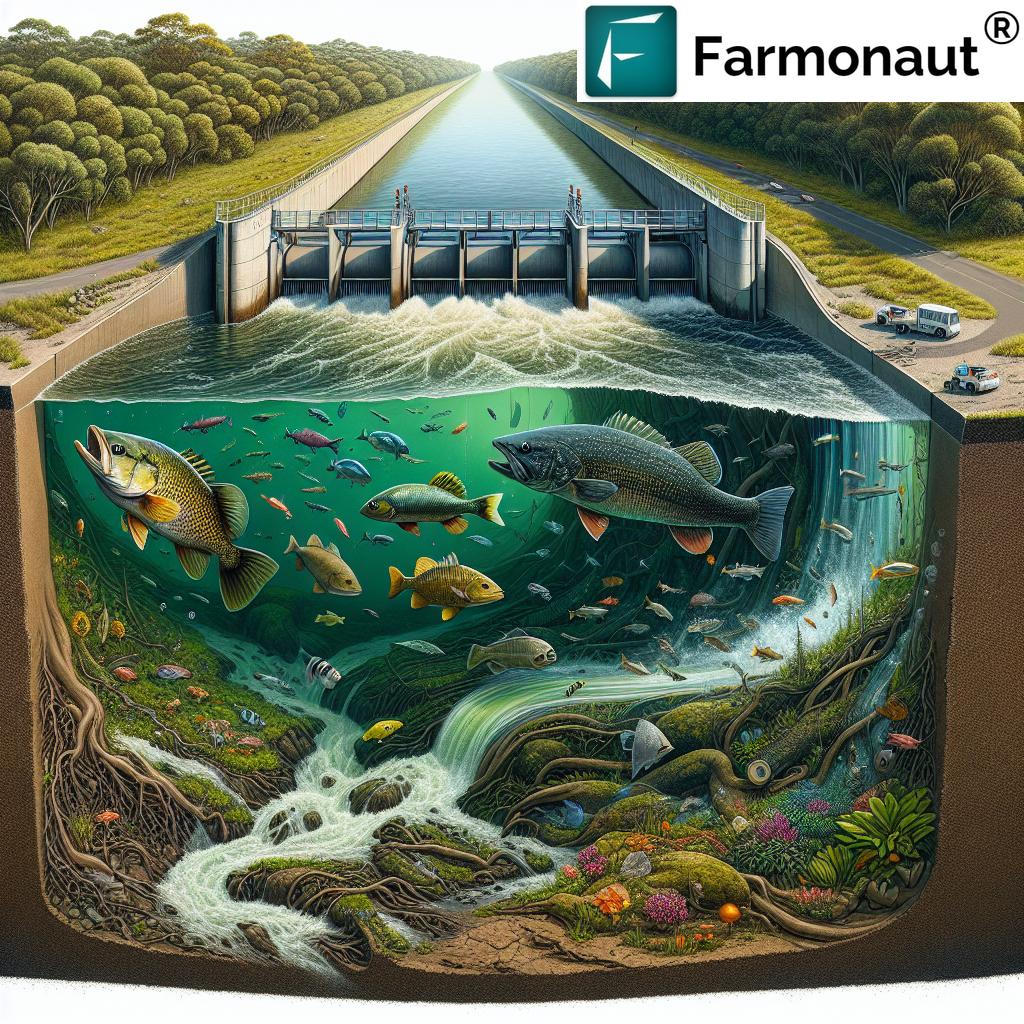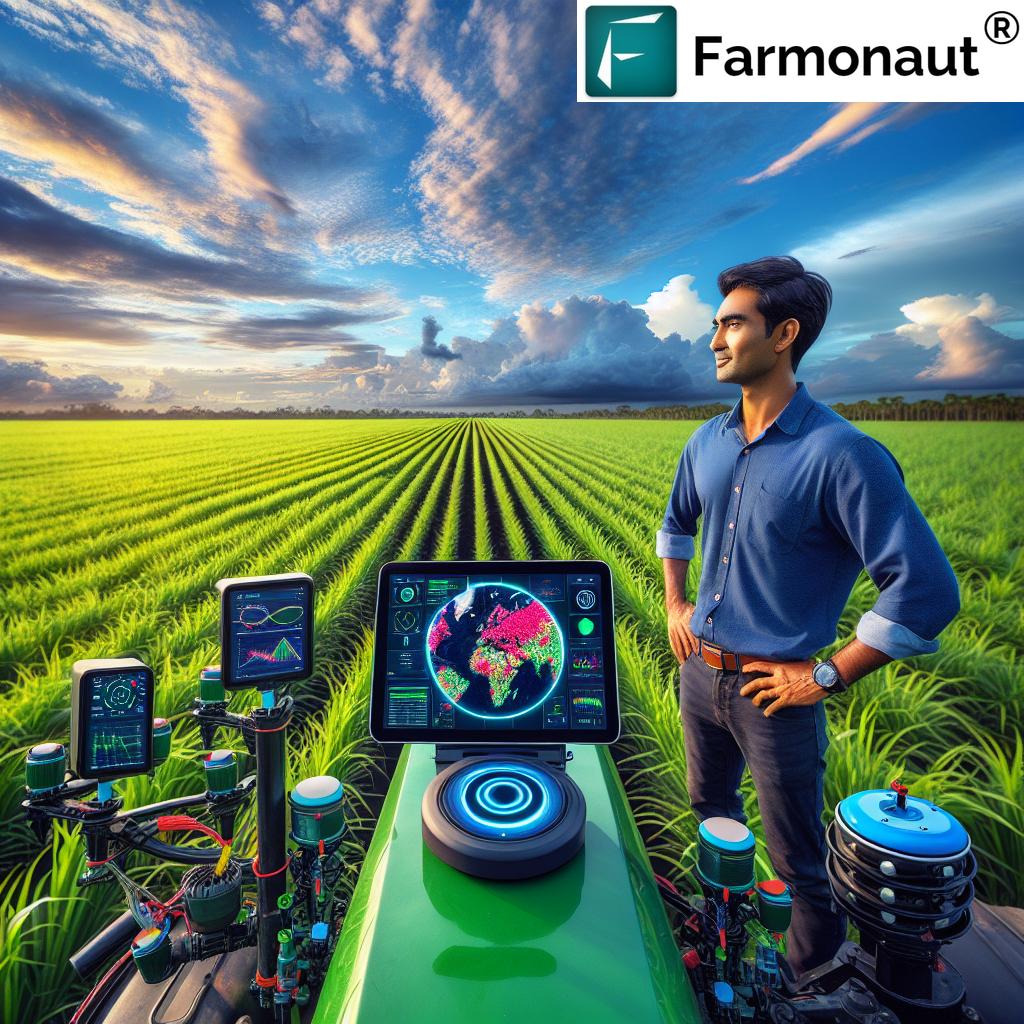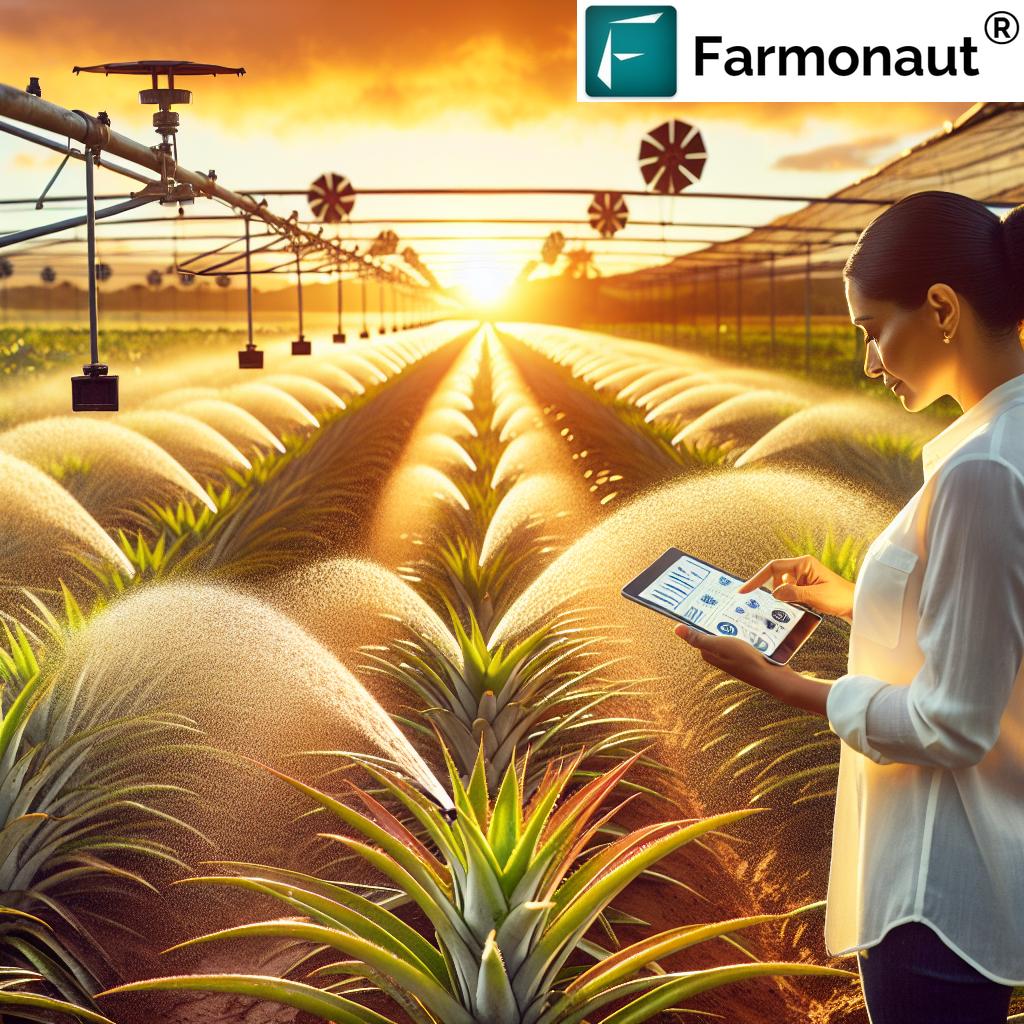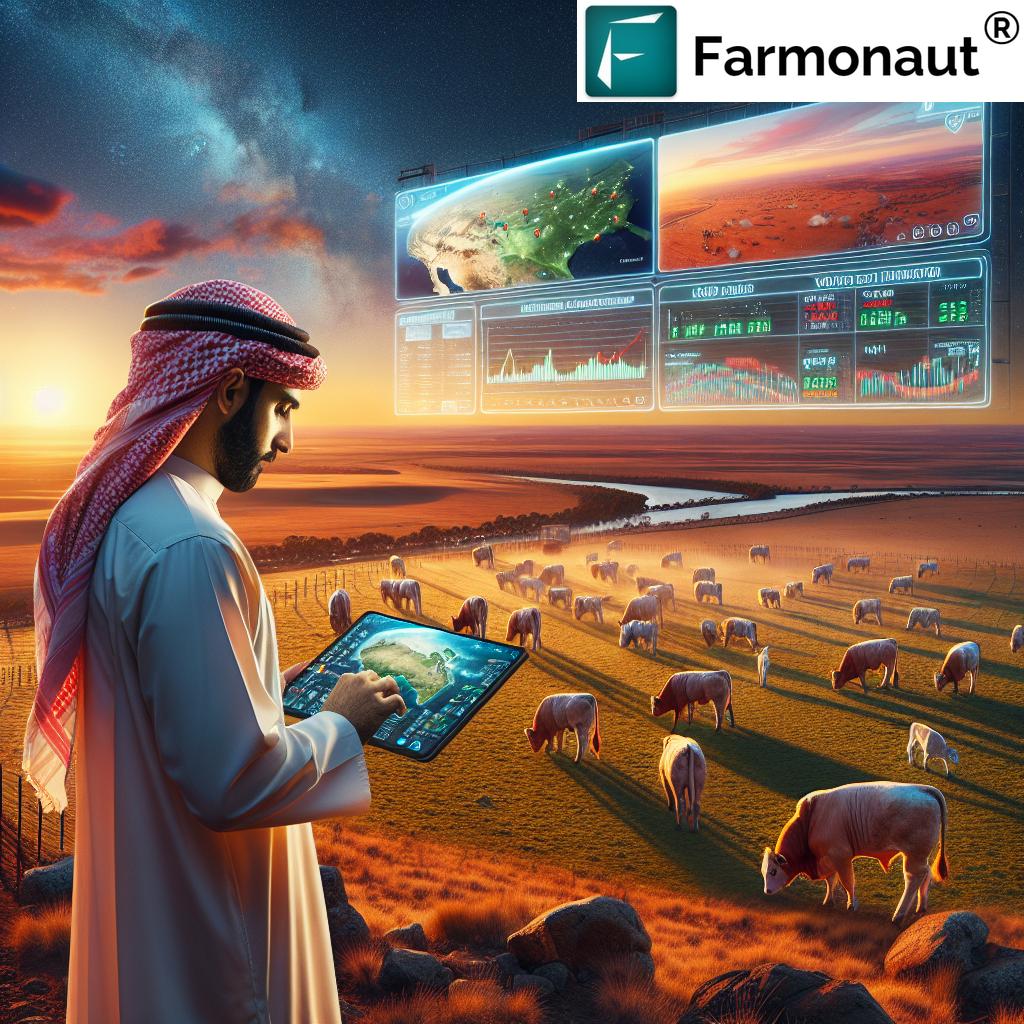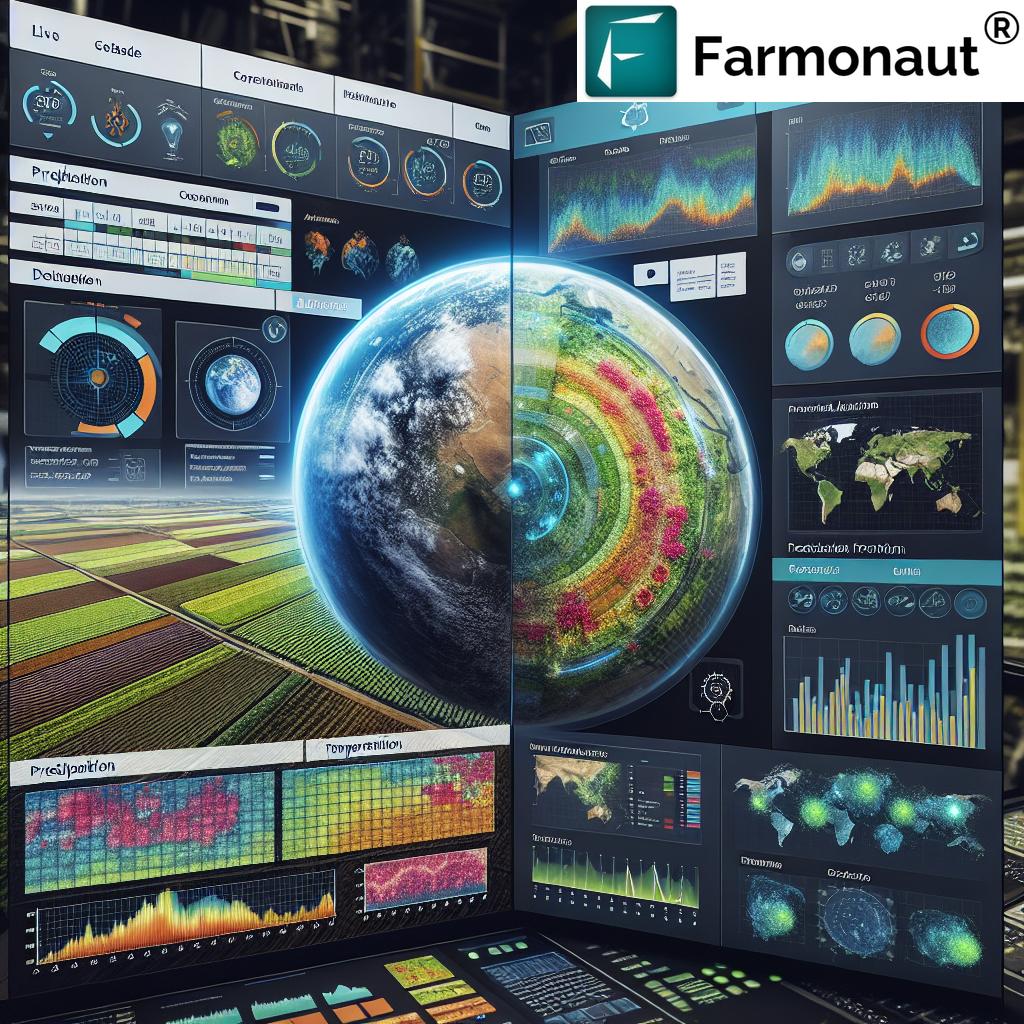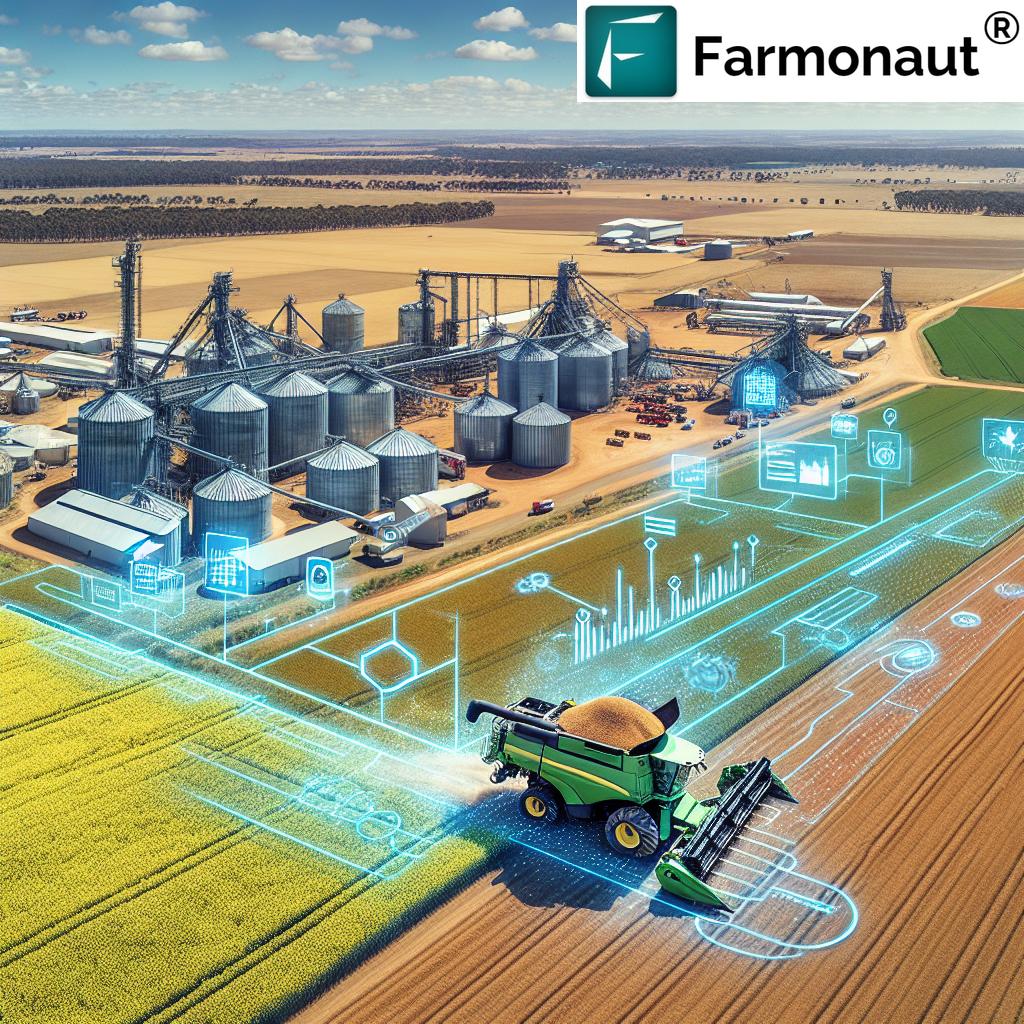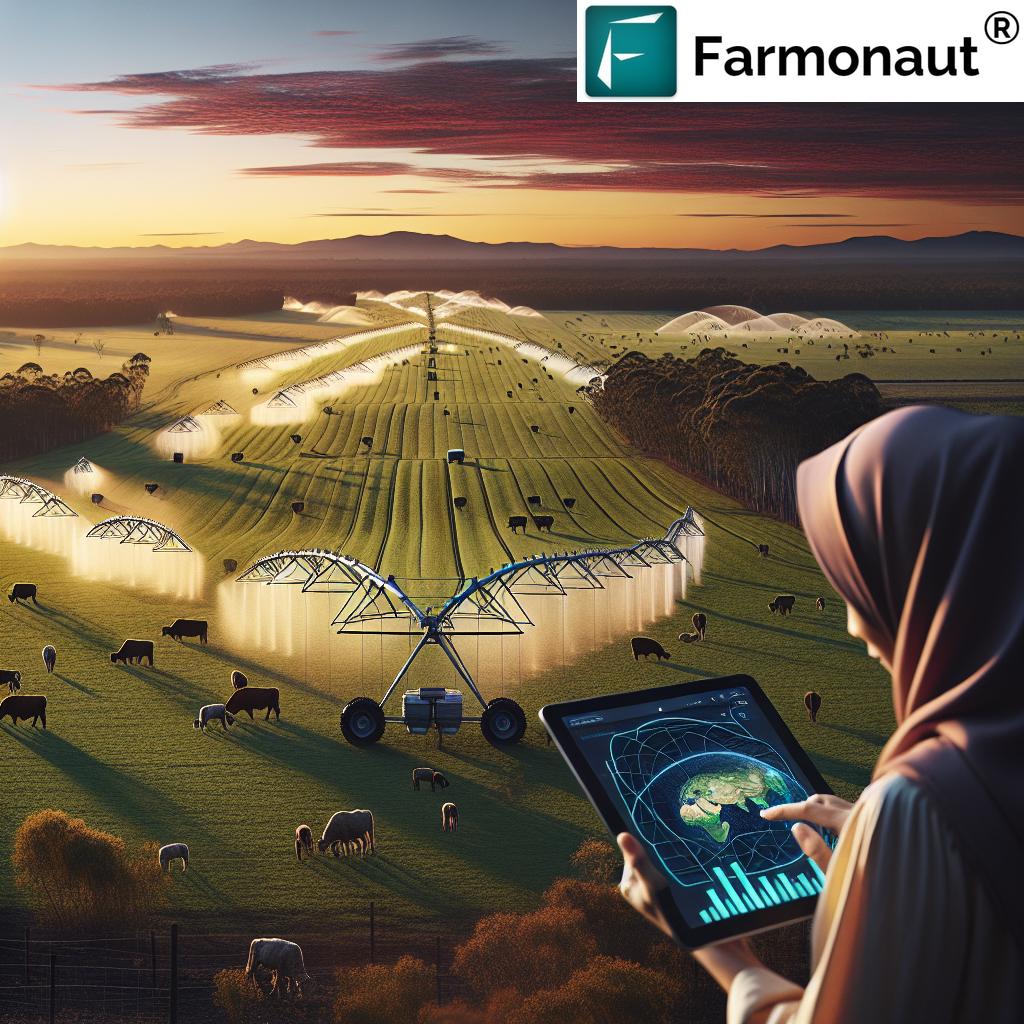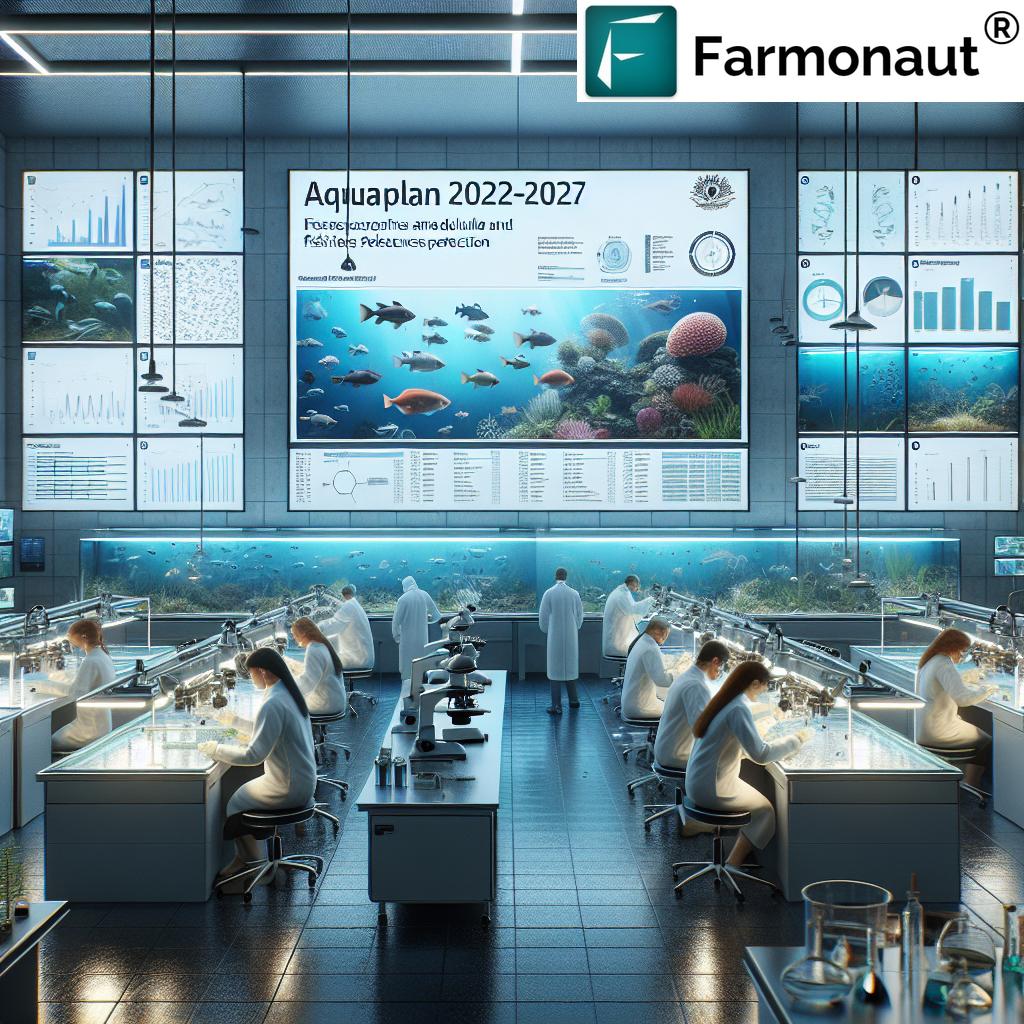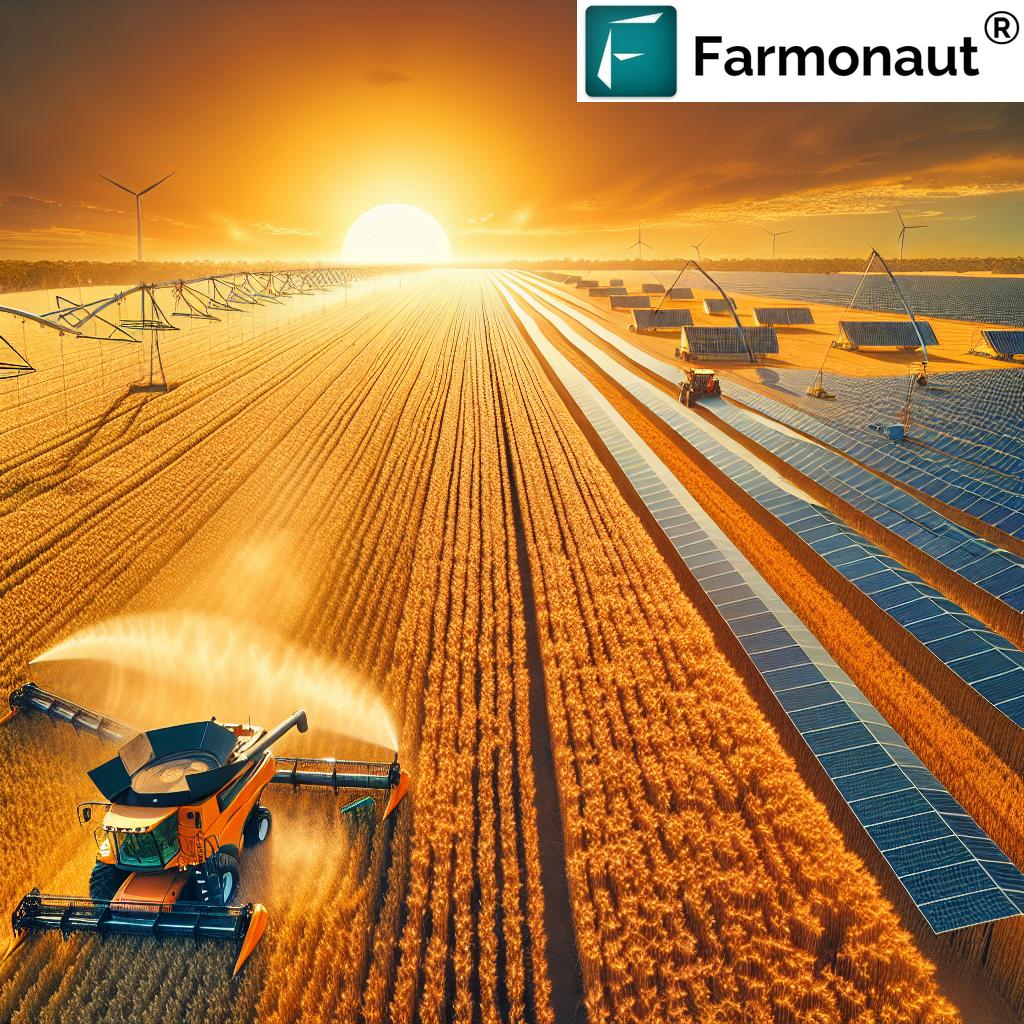Sustainable Pig Farming in Victoria: Farmonaut’s Innovative Solutions for Ethical Animal Welfare and Farm Management
“Farrowing crates, used in 70% of pig farms, restrict sow movement to an area barely larger than their bodies.”
As we delve into the world of sustainable pig farming in Victoria, Australia, we find ourselves at the intersection of ethical animal welfare and modern farm management. In this comprehensive exploration, we’ll uncover the challenges faced by the pig industry, particularly concerning the controversial use of farrowing crates, and how innovative solutions from agricultural technology companies like Farmonaut are reshaping the future of piggery management.
The Current State of Pig Farming in Victoria
Victoria, known for its diverse agricultural landscape, has a significant pig farming industry. However, like many regions worldwide, it faces scrutiny over animal welfare practices, particularly the use of farrowing crates. These restrictive enclosures, designed to protect piglets from being crushed by their mothers, have become a focal point of debate in the animal welfare community.
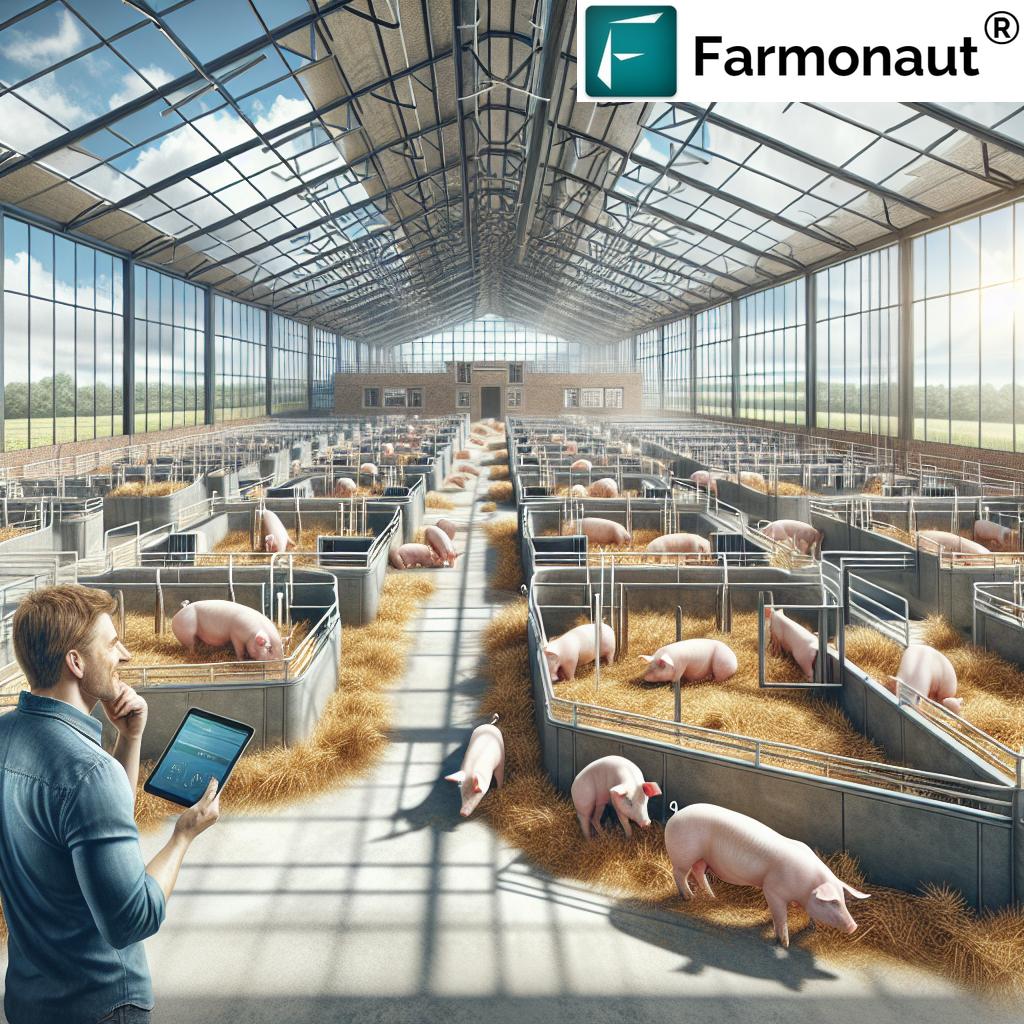
Understanding Farrowing Crates: A Controversial Practice
Farrowing crates are narrow metal enclosures used in commercial pig farming to confine sows during late pregnancy, birth, and early lactation. While they were initially introduced to reduce piglet mortality, they’ve come under intense criticism for severely restricting the natural behaviors of sows.
- Typical dimensions: 2m x 0.6m x 1m
- Restricts sow movement to standing, sitting, and lying
- Prevents sows from turning around or interacting naturally with piglets
The Ethical Dilemma
The use of farrowing crates presents a complex ethical dilemma. On one hand, they can reduce piglet mortality by preventing accidental crushing. On the other, they significantly compromise the welfare of sows, leading to stress, frustration, and physical discomfort.
Animal Welfare Concerns in Pig Farming
The welfare of farm animals, particularly pigs, has become a growing concern for consumers, farmers, and policymakers alike. In Victoria and across Australia, there’s increasing pressure to adopt more ethical farming practices that prioritize animal well-being without compromising productivity.
Key Welfare Issues in Piggeries
- Limited space and movement for sows
- Lack of environmental enrichment
- Separation of piglets from mothers
- Tail docking and teeth clipping practices
- Stress-induced behaviors in confined environments
These concerns have led to a push for alternative farrowing systems that allow for more natural behaviors while still ensuring piglet safety.
Farmonaut’s Approach to Sustainable Pig Farming
In the face of these challenges, agricultural technology companies like Farmonaut are stepping up to offer innovative solutions. While not specifically focused on pig farming, Farmonaut’s satellite-based farm management solutions can be adapted to address many of the issues faced in modern piggery management.
Explore Farmonaut’s solutions:
Satellite-Based Monitoring for Improved Farm Management
Farmonaut’s satellite imagery technology can be utilized to monitor pig farm conditions, providing valuable insights into:
- Space utilization in outdoor farming setups
- Vegetation health in free-range areas
- Environmental impact assessment
By leveraging this technology, pig farmers can make data-driven decisions to improve both animal welfare and farm efficiency.
AI-Driven Advisory Systems for Ethical Farming Practices
The Jeevn AI advisory system, a key component of Farmonaut’s offerings, can be tailored to provide pig farmers with:
- Personalized advice on optimal housing conditions
- Recommendations for enrichment activities to promote natural behaviors
- Alerts for potential health issues in the herd
“Alternative farrowing systems can reduce piglet mortality by up to 40% while allowing sows more freedom of movement.”
Alternative Farrowing Systems: A Step Towards Ethical Pig Farming
As we move away from traditional farrowing crates, several alternative systems are gaining traction in Victoria and beyond. These systems aim to balance piglet safety with improved sow welfare.
1. Free Farrowing Pens
Free farrowing pens provide sows with more space to move and turn around, typically measuring 2.4m x 3.6m. They often include protective features for piglets, such as sloped walls or rails.
2. Group Housing Systems
Group housing allows sows to interact with each other and their piglets in a more natural setting. These systems require careful management to prevent aggression and ensure piglet safety.
3. Outdoor Farrowing Huts
For farms with suitable land and climate, outdoor farrowing huts offer a more natural environment. These A-frame structures provide shelter while allowing sows and piglets freedom of movement.
Comparing Farrowing Systems: A Data-Driven Approach
To better understand the impact of different farrowing systems on animal welfare and farm management, let’s examine a comparative analysis:
| Farrowing System Type | Space per Sow (m²) | Piglet Mortality Rate (%) | Sow Welfare Score (1-10) | Natural Behavior Allowance | Farm Management Complexity | Initial Setup Cost | Long-term Sustainability Rating |
|---|---|---|---|---|---|---|---|
| Traditional Farrowing Crates | 1.2 | 10-12 | 3 | Low | Low | Low | ★☆☆☆☆ |
| Free Farrowing Pens | 5.0 | 12-15 | 7 | Medium | Medium | Medium | ★★★★☆ |
| Group Housing Systems | 4.0 per sow | 15-18 | 8 | High | High | High | ★★★★★ |
| Outdoor Farrowing Huts | Variable | 18-20 | 9 | High | Medium | Low | ★★★★☆ |
This comparison highlights the trade-offs between different systems, demonstrating that while alternative systems may have slightly higher piglet mortality rates, they significantly improve sow welfare and long-term sustainability.
Integrating Technology for Better Pig Welfare and Farm Management
While Farmonaut’s solutions are not specifically designed for pig farming, their adaptable technology can play a crucial role in improving pig welfare and farm management practices.
Applying Satellite Imagery to Pig Farm Management
Satellite-based monitoring can be particularly useful for outdoor pig farming systems:
- Assessing pasture quality for free-range pigs
- Monitoring soil health in outdoor areas
- Tracking environmental impact of pig farming operations
Explore Farmonaut’s API for custom solutions: Farmonaut API
AI-Driven Insights for Piggery Management
The Jeevn AI system can be adapted to provide valuable insights for pig farmers:
- Predicting optimal times for farrowing based on environmental conditions
- Alerting farmers to potential health issues in the herd
- Optimizing feed and water management
The Role of Technology in Addressing Livestock Confinement Concerns
As we move towards more ethical farming practices, technology plays a crucial role in addressing the challenges associated with livestock confinement. Farmonaut’s solutions, while not pig-specific, demonstrate how agritech can be adapted to improve animal welfare across various farming sectors.
Monitoring and Improving Farm Animal Behavior
Advanced monitoring systems can help farmers better understand and respond to animal behavior:
- Tracking movement patterns to ensure adequate exercise
- Identifying stress indicators through behavioral analysis
- Optimizing environmental conditions based on animal responses
Access Farmonaut’s developer documentation: API Developer Docs
The Future of Sustainable Pig Farming in Victoria
As Victoria moves towards more sustainable and ethical pig farming practices, we can expect to see:
- Gradual phasing out of traditional farrowing crates
- Increased adoption of alternative farrowing systems
- Greater integration of technology in farm management
- Stricter regulations on animal welfare standards
- Growing consumer demand for ethically produced pork
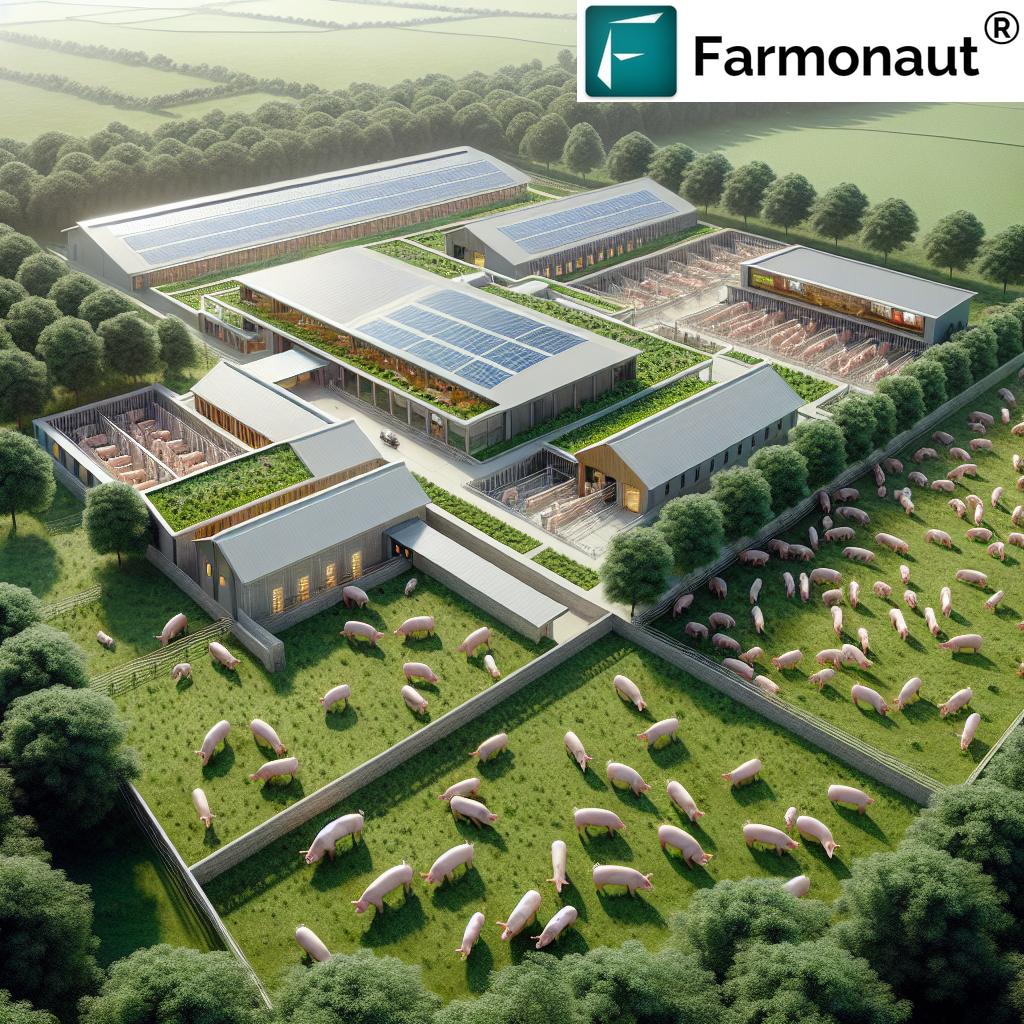
Challenges and Opportunities in Transitioning to Ethical Pig Farming
The transition to more ethical pig farming practices presents both challenges and opportunities for farmers in Victoria:
Challenges:
- Higher initial costs for alternative housing systems
- Potential for increased piglet mortality in some alternative systems
- Need for retraining staff in new management practices
- Balancing animal welfare with economic viability
Opportunities:
- Improved public perception and consumer trust
- Potential for premium pricing on ethically produced pork
- Reduced stress-related health issues in sows
- Innovation in farm design and management techniques
Farmonaut’s Contribution to Sustainable Agriculture
While Farmonaut’s primary focus is not on pig farming, its technologies offer valuable tools that can be adapted to support the transition to more ethical and sustainable pig farming practices:
- Satellite-based monitoring for efficient land use and environmental impact assessment
- AI-driven advisory systems for optimized farm management
- Data analytics for improved decision-making in animal welfare practices
Explore Farmonaut’s mobile apps:
Conclusion: A Sustainable Future for Pig Farming in Victoria
As we look towards the future of pig farming in Victoria, it’s clear that the industry is at a crossroads. The transition from traditional farrowing crates to more ethical and sustainable practices is not just a moral imperative but also a response to changing consumer expectations and regulatory pressures.
By leveraging innovative technologies and embracing alternative farrowing systems, Victoria’s pig farmers can lead the way in ethical animal welfare while maintaining productive and economically viable operations. Companies like Farmonaut, with their adaptable agricultural technology solutions, play a crucial role in this transition, offering tools that can be tailored to support more humane and efficient pig farming practices.
The journey towards sustainable pig farming is complex and challenging, but it’s also filled with opportunities for innovation and improvement. As we continue to balance the needs of animals, farmers, and consumers, we can look forward to a future where pig farming in Victoria is synonymous with high welfare standards, environmental responsibility, and technological advancement.
FAQs about Sustainable Pig Farming in Victoria
- What are farrowing crates, and why are they controversial?
Farrowing crates are small enclosures used to confine sows during birthing and early lactation. They’re controversial because they severely restrict the sow’s movement, causing stress and preventing natural behaviors. - What are some alternatives to farrowing crates?
Alternatives include free farrowing pens, group housing systems, and outdoor farrowing huts. These systems provide more space and allow for more natural behaviors while still aiming to protect piglets. - How can technology improve pig farming practices?
Technology like satellite monitoring, AI advisory systems, and data analytics can help optimize farm management, improve animal welfare monitoring, and enhance decision-making processes in pig farming. - What are the main challenges in transitioning to more ethical pig farming practices?
Challenges include higher initial costs, potential increases in piglet mortality, the need for staff retraining, and balancing animal welfare with economic viability. - How does sustainable pig farming benefit consumers?
Sustainable pig farming practices result in higher welfare standards for animals, potentially healthier meat products, and greater transparency in the food production process, aligning with consumer values and expectations.






